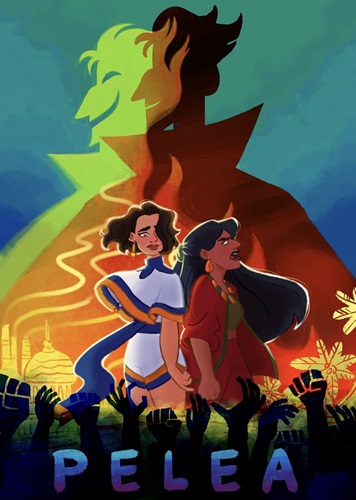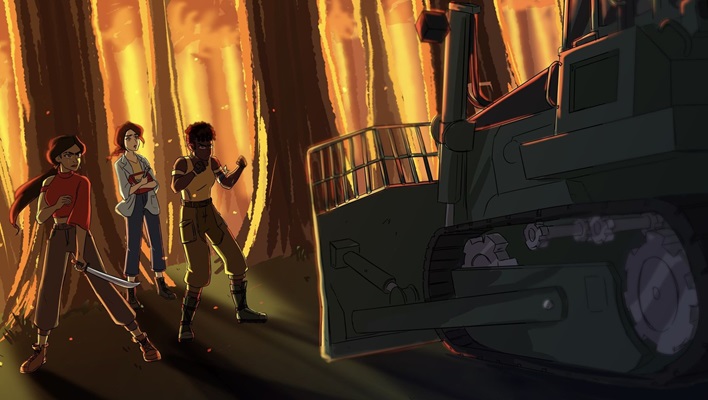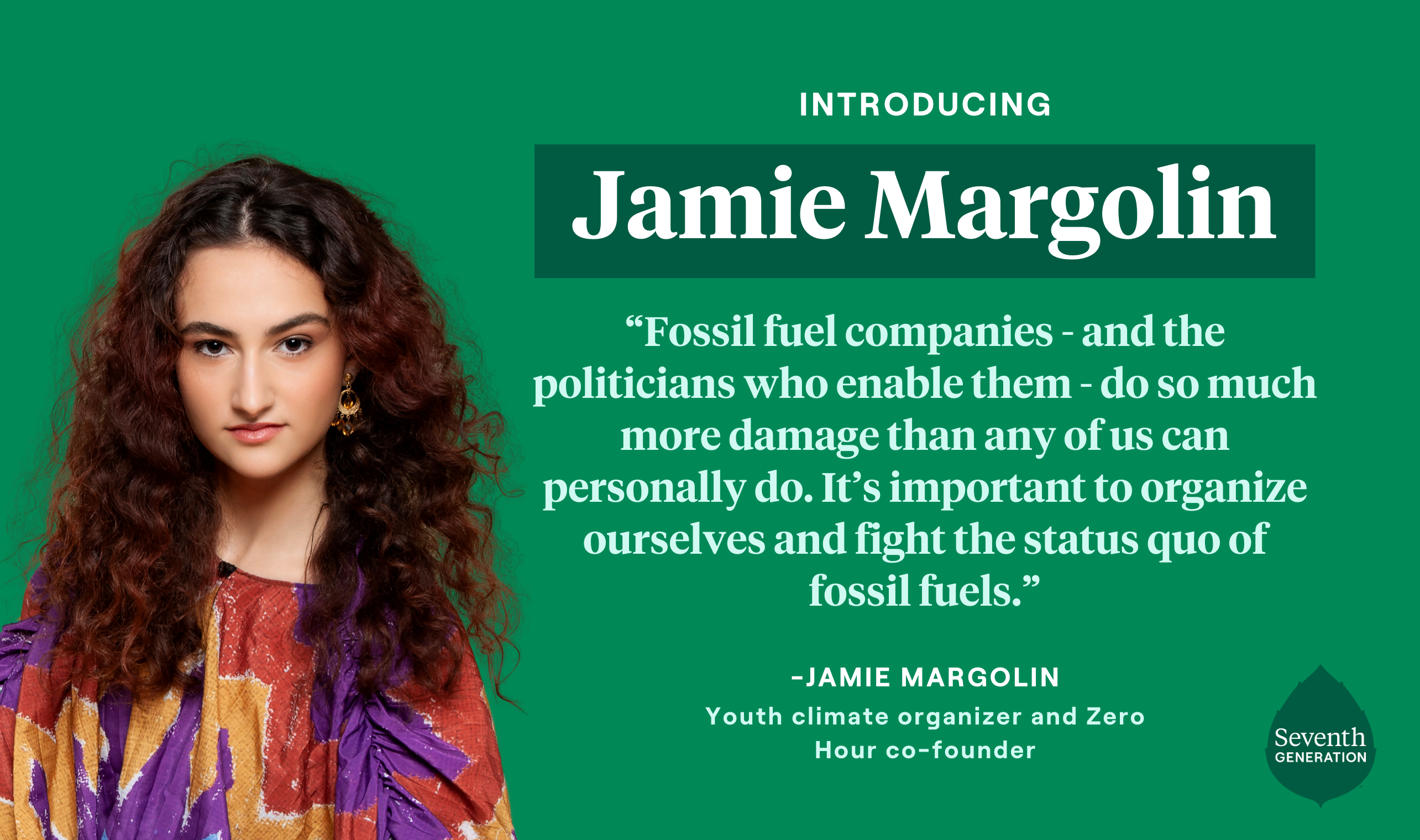Jamie Margolin, Co-Founder of Zero Hour, Youth Climate Movement Leader
For many in Gen Z, climate change has been a current reality their whole life. Jamie Margolin knew about the looming crisis at an early age and has only seen it gotten worse. The lack of climate action motivated her to found her own organization, Zero Hour, in 2017. The group has been a key partner among the youth climate movement ever since.
We had the opportunity to meet Jamie and hear more about her story, her perspectives on the climate movement, and what’s next for her after she graduates from college in the spring. You may find her career aspirations surprising. Read on!
What inspired you to first become involved in climate justice?
I’ve always known about the climate crisis. I grew up with it looming, and it’s only gotten worse as I’ve gotten older. I had the right instincts in second grade when I started a Green Club. I made pins and shared them with classmates, but my organizing knowledge ended there.
I really learned organizing while interning at the Seattle Democratic candidates’ office during the 2016 presidential election. At 14 years old, I was the youngest on staff, helping translate for Spanish speakers and get out the vote. I was particularly motivated to stop Donald Trump from being elected, knowing he’d be terrible for climate action.
After the election, I was devastated by the results. But I soon realized I needed to get more involved in local organizations, so I found Climate Action Families. I attended meetings, lobby days, events, and through it all, learned a lot about local climate justice organizing.
How did you go from there to founding Zero Hour just a year later?
In 2017, we had our first wildfire locally that made Seattle’s skies apocalyptic. There were also several devastating hurricanes that year: Hurricanes Irma, Harvey, and Maria. I kept thinking, Why aren’t we treating this like the emergency it is?
So, together with some friends, Nadia Nazar, Madelaine Tew, and Zanagee Artis, we founded Zero Hour: named for how much time we have left to act on climate. We organized our first youth climate march that same year.
The next year, 2018, we set our sights higher. In July, we organized 25 marches for climate action, led by youth in cities around the world. Then soon after, the school strikes began, and we worked with leaders all over the world like Greta Thunberg to mobilize for climate justice. Our global youth climate movement has really blown up.
As you’ve risen in leadership, how has your perspective changed on fighting for climate justice? How have you grown or changed as a person?
I’ve seen a lot in the last 6 years. I’ve spoken to many companies and politicians, and I now see with eyes wide open the “game” that exists. “Sustainability” has now gone mainstream, with companies co-opting the term and greenwashing their actions, acting with so much hypocrisy. Of course, one has to have some kind of hypocrisy living in this society, but the dissonance of capitalism and climate action is strong.
The pure intentions of my 15 -year-old self have evolved into being more wary of politicians’ stances or corporate pledges. I’ve learned to see the tripwires and better navigate the systems.
I’m also fully aware of the state we’re in: I get mad about statements of “We can still stop the climate crisis.” No, we can’t stop climate change anymore. The question is more about how we can stabilize our climate. We’re barreling toward climate instability, and if we don’t act quickly, how will we be prepared for such a possibility?
As resources dwindle in areas struck by climate disasters – crop failure, drought, and lack of water access – we’re going to see even more migration. I’m afraid groups are going to get more tribalistic and humanity’s prejudices and blaming of the “other” will worsen. With the increase of climate migrants from the Global South that is becoming more impacted by climate catastrophe, I am very concerned about the growth of white supremacy and fascism that is rising worldwide.
Things will change. It’s going to be painful. But we must work for peace and understanding.
Working for climate action can be exhausting. How do you stay motivated and keep going?
I have to take breaks. I hang out with friends, go out dancing. I do things I love: reading books and making art. Then get back to it.
Working for climate action is a life-long fight. We are fighting for our survival, so part of the work is motivated by an existential instinct to keep going.
Why does one take meds when you are terminally ill? We must do whatever we can.
Now that you’re in college, it seems you’ve taken a new turn in your climate activism. Can you share more about that?
Yes, I am finishing my last year to get my Bachelor in Fine Arts. I love using art to express myself and tell stories, and that is how I’ve gotten into filmmaking – both live action and animation.
I am currently in the editing stage of a live-action film called “Doomers”. It’s been a fun collaboration with the environmental filmmaker Josh Fox. The film’s about a burned-out activist (somewhat a parody of myself) and a climate scientist who feel like giving up on fighting the climate crisis. It’s a dark comedy and a cautionary tale of what happens if we exhaust ourselves.

But animation is my true love. I am also working on an animated short film called “Pelea” (“fight” in Spanish). It’s inspired by the stories of my mother’s homeland, Colombia, where communities have stood up to oil companies to protect the rainforest and their own livelihoods and cultures. This intersectional fight is a fight against the climate crisis, as well.

What advice would you give to individuals who want to get involved in climate action but are unsure what to do next?
My call to action is to get involved with and support organizations working to stop new fossil fuel development. Fossil fuel companies and the politicians who enable them do so much more damage than any of us can personally do, so it’s important to organize ourselves and fight the status quo of fossil fuels.
Two organizations I’d recommend following and taking action with are Zero Hour (follow @ThisIsZeroHour on social media) and the powerful coalition of People vs. Fossil Fuels.


